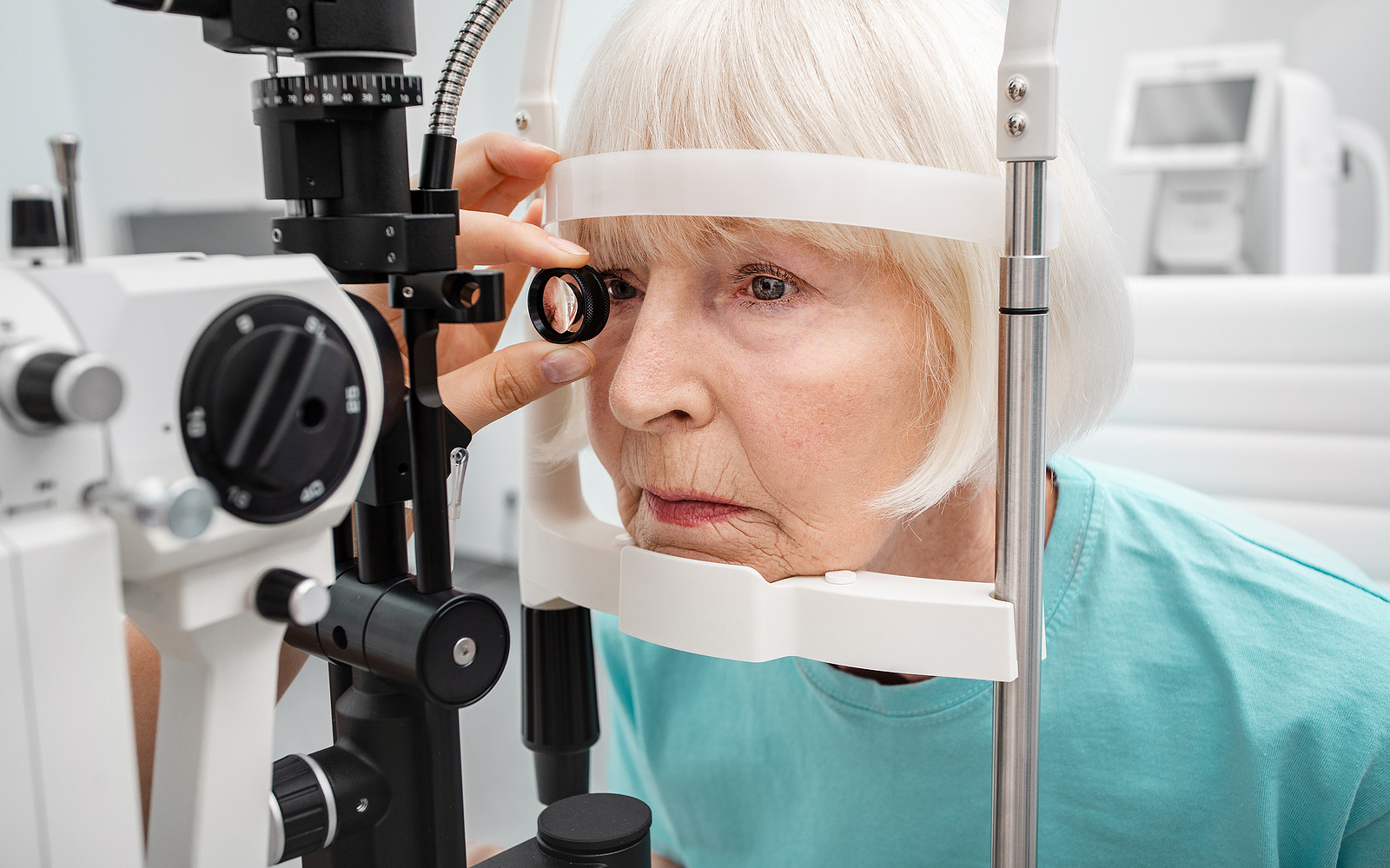For Patients With Diabetes, Regular Eye Exams Could Save Your Sight

Eye checkups and blood sugar maintenance can help patients avoid long-term issues.
Whether you’ve been living with diabetes for decades or you’re learning how a new diagnosis will affect your daily life, a combination of managing your blood sugar levels and keeping your ophthalmology appointments could make all the difference in preventing diabetes-related vision damage
The CDC reports that early detection and treatment can help 90% of people with diabetes avoid or delay vision loss. The steps you take now can head off adverse health effects in the short term — and permanent issues in the long term. Thankfully, qualified eye care specialists can help you preserve your eyesight even while living with diabetes.
Diabetes and Eye Health
By managing blood glucose levels, diabetes patients can avoid immediate eye issues as well as permanent complications. In the short term, higher blood glucose levels can affect the fluid in the eye and lead to swelling. This can cause blurry vision and make it difficult to focus your eyesight. Usually, this will correct itself once blood glucose reverts to acceptable levels.
If blood glucose stays high over time, however, the health effects can be more serious. For example, high blood glucose can damage the blood vessels at the back of the eye. This can lead to leaking and swelling, or cause the formation of weaker blood vessels that can bleed and scar the eye while dangerously raising internal pressure.
Understanding Diabetic Retinopathy
Without proper maintenance of diabetes, patients can experience diabetic retinopathy. This occurs when high blood glucose levels, left untreated, weaken blood vessels in the retina and cause swelling and leaking, among other adverse effects.
While 80-85% of diabetes patients will develop some degree of the condition during their lifetime, the condition can be treated. By working with specialists, patients can get their diabetes under control and reverse or stem the problems caused by diabetic retinopathy.
How to Reduce Risks
With the American Academy of Ophthalmology reporting that 60% of patients with diabetes skip eye exams that could be the difference between preserving their vision and losing their eyesight, it’s clear that patients need to take a proactive role in their health. Besides maintaining normal blood glucose levels, it’s essential for diabetic patients to schedule regular eye exams — even if they’re not experiencing troubles with their vision.
If you’re concerned about your eye health as a function of your diabetes, consider scheduling a consultation with Swagel Wootton Eye Institute at our Mesa or Chandler locations. With the right attention from qualified specialists, you can put yourself on track to manage your diabetes and protect your vision.
[DISPLAY_ULTIMATE_SOCIAL_ICONS]








